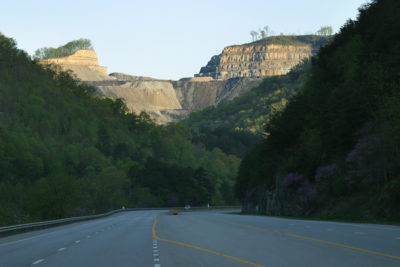FOR IMMEDIATE RELEASE
December 15, 2021
CONTACT:
Matt Hepler, Central Appalachian Environmental Scientist, Appalachian Voices
matt.hepler@appvoices.org
Mary Cromer, Deputy Director, Appalachian Citizens Law Center, mary@aclc.org, (540) 817-9652
Appalachian Voices has created a web page designed to help concerned residents, reporters and regulators track the status of mines caught up in the Blackjewel bankruptcy where the permits will become void once the Blackjewel companies cease to exist at the end of the year.
When Blackjewel, Revelation Energy and other affiliated mining operations filed for Chapter 11 bankruptcy in July 2019, the fate of thousands of acres of unreclaimed mine land was left uncertain.
Under the court-approved bankruptcy plan, Blackjewel, Revelation, and their affiliated companies will cease to exist at the end of December, making state regulators responsible for ensuring reclamation is completed at hundreds of mine sites. Federal surface mining laws require companies to post a reclamation bond when they receive mining permits to guarantee money will be available for the state or a third-party surety bonding company to reclaim forfeited mines.
But many states allow companies to use alternate bonding approaches, including “self-bonding,” which is a simple declaration that they can provide the money to reclaim land, and pool bonding, which allows companies to pay lower bond amounts into a pool that can be tapped as needed.

An Eastern Kentucky coal mine. Photo by Matt Wasson
“What we’re seeing here is a coal company completely walking away from its reclamation responsibilities,” said Mary Cromer, deputy director of Appalachian Citizens’ Law Center. “And, we fear that this could be allowed for other coal companies as well. The bonds for all of these unreclaimed permits are often insufficient to cover the cost of clean up, which means that the state becomes responsible for reclamation but with insufficient funding to pay for the job.”
As these permits continue to languish, the risk of landslides and other safety hazards for local residents increases. State mining agencies and the federal Office of Surface Mining Reclamation and Enforcement have a responsibility to ensure timely and complete reclamation.
The online mapping tool created by Appalachian Voices can help illuminate such concerns by allowing people to easily assess the status of the permits for thousands of acres of the Blackjewel/Revelation mines, showing which mines haven’t been transferred and will no longer have a permittee at the end of the year — and where those mines are located. The map was updated on Dec. 1 with the most recent information from Virginia Energy, Kentucky Surface Mine Information System, the West Virginia Department of Environmental Protection Permit Search and the U.S. Office of Surface Mining Reclamation and Enforcement inspectable unit list. In addition, the page provides important background and context on many of the at-risk mines.
The bonding systems across Appalachia have long been inadequate, and this bankruptcy is likely to exacerbate that problem. This tool may help provide an early warning of potential problem areas.
###
Appalachian Voices is a leading nonprofit advocate for a healthy environment and just economy in the Appalachian region, and a driving force in America’s shift from fossil fuels to a clean energy future.

